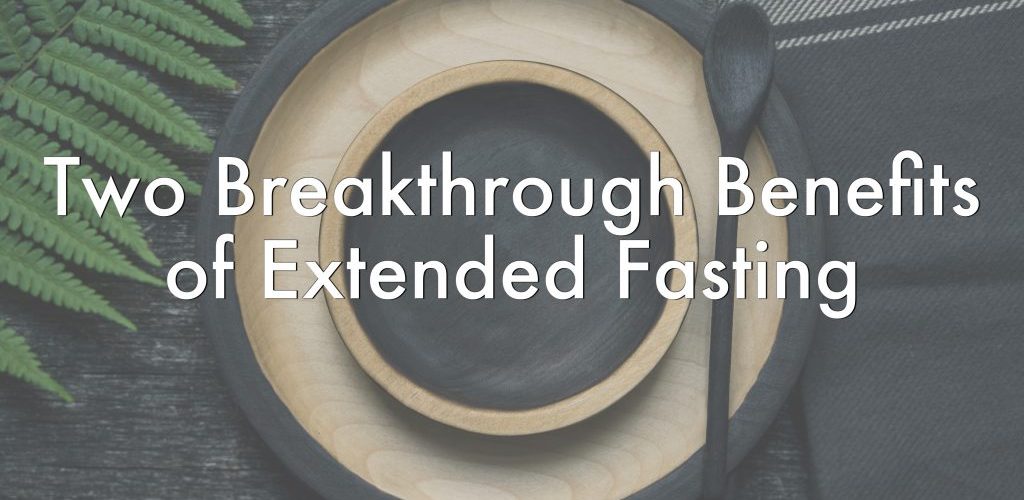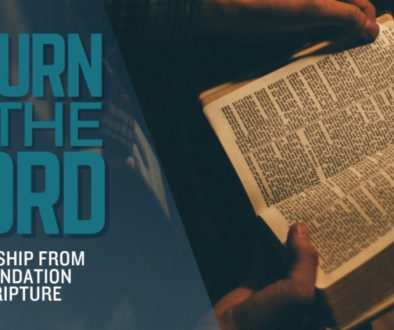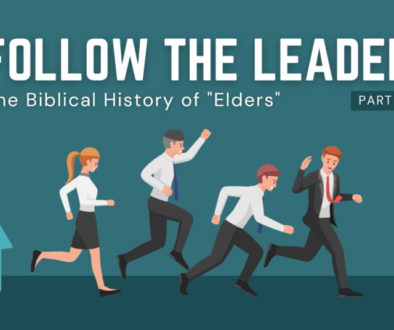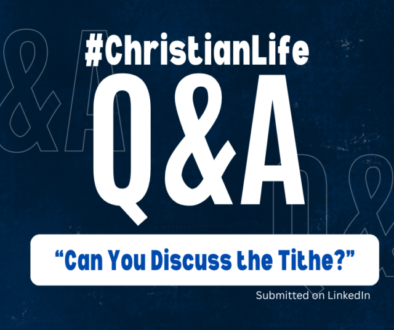For the past 6 years, our ministry has begun each January with a 21-day extended fast. It has become a part of our annual rhythms, and has produced so much fruit in the lives of our churches and leadership, that it would be difficult to remove it from our calendars.
In the same way, many of you also begin the new year with dedicated time to fast and pray, as part of your annual re-focusing on the Lord for the next season. In fact, where I live in Uganda it is unusual to see Christians not fasting, in some capacity, during this season.
Despite the difficulty of an extended fast, many of the benefits of fasting are well established and attested to. We have seen numerous miracles, financial breakthroughs, physical healings, and more. It is also no secret that fasting has a large number of physical benefits for the human body as well. While all of these things are great, I want to narrow our focus a little bit in this post, and share two of the most beneficial effects of fasting in our spiritual walk with the Lord. Before we get there, let me address the question of “why” we fast in the first place.
Why Fast?
Fasting is an ancient practice, older than Christianity. It was a common practice of the Jewish people, as well as almost every other religious system. That in itself is not enough of a reason for us to do it, but does lay out the view that nearly every culture has found spiritual value in the practice.
According to the Lexham Bible Dictionary:
“In the ancient Near East, fasting held social significance similar to feasting. Both practices could create or renew a social bond and displayed an individual’s or group’s current state. While feasting was often a public display of wealth and success, fasting was a display of humility and grief…Fasting by people in the ancient world also could indicate a troubled spirit…By fasting, individuals could dissociate themselves from other people and society, perhaps to move closer to the divine…”
David Seal and Kelly A. Whitcomb, “Fasting,” ed. John D. Barry et al., The Lexham Bible Dictionary (Bellingham, WA: Lexham Press, 2016).
This is the same sentiment we read throughout the Old Testament, as people would fast in seasons of grief and mourning, or as a method of seeking God’s guidance in preparation to face uncertainty, such as before a battle. They would also fast in connection with the Day of Atonement, which likely included fasting from more than only food. It also meant abstaining from sexual activity, personal activities which would draw attention to yourself in public (such as fragrant oils or bathing), and possible even from wearing comfort items, like shoes.
Fasting has always been a spiritual tool to aid a person’s prayers, seeking the grace of the Lord in difficult situations, and victory in the circumstances ahead.
Jesus Expected His Disciples To Fast
As fasting was simply a part of Jewish life, and Christianity is a fulfillment of the Jewish law and prophets, it is no wonder that Jesus expected that his disciples would continue the act of fasting. In one of His earliest public sermons – the sermon on the mount – He gave clarifying instructions on a number of spiritual practices, implying that they should continue.
In Matthew 6:2, Jesus begins these instructions by saying “when you give to the needy,” do not do it for show. Those who make a big ado about their giving have their reward in the praise of man.
In Matthew 6:5, He continues: “when you pray,” don’t do it just to look spiritual in front of people. It’s better to go into hiding, in the secret place with the Lord, than to pray with ulterior motives publicly.
Finally, in Matthew 6:15, He says, “when you fast” don’t put on a public spectacle of yourself. Instead of showing off your piety for all to see, keep it between you and the Lord, and He will reward you.
Christians Fast For More of Jesus
In Matthew 9:14, a question arose among the disciples of John the Baptist as to why they, and the disciples of the Pharisees fast, but Jesus’ disciples did not. Jesus answered essentially that they could not fast because the answer to their prayers (Himself) was already with them. However, after He would leave them, they would fast.
This has proven to be the case. Since Jesus left, Christians in every generation have been faced with situations, both in private life and publicly, that have needed God’s divine intervention. Whether it be overcoming personal sin and demonic torments, or staying strong in the face of persecution, our only answer is to experience more of Jesus in our present lives. It is upon this point that I will build my case for the two big benefits of fasting.
Jesus Fasted
I believe that in all things, Jesus is the greatest example we have to follow in living the Christian life, and His Word gives us a view into His fasted life. In Luke 4:1, immediately after His baptism by John and His filling with the Holy Spirit, the Bible tells us:
And Jesus, full of the Holy Spirit, returned from the Jordan and was led by the Spirit in the wilderness for forty days, being tempted by the devil. And he ate nothing during those days. And when they were ended, he was hungry.
While Jesus was in the wilderness, He was fasting and praying. Modern science typically agrees that a 40 day abstinence from food is pretty much the extent of human capability. Death will follow not long after. That means that Jesus was not out for a refreshing spiritual retreat. He was desperate for God’s intervention in His life, and His ministry which was about to begin.
During this time, the Devil comes and tempts Jesus with many things, but only the final three temptations are recorded. The first was that He should turn stones to bread. Now, as someone who has not eaten for 40 days, and is possibly near death, this temptation would be a tough one. Still, Jesus resists the temptation. Then there is the temptation to test His identity as the Son of God. “Throw yourself off the Temple, and angels will rescue you.” Again, Jesus was victorious. Finally, the biggest test came. “I will give you everything you want, without the need to die on the cross, if you will worship me.” In full submission to God’s Word and will, Jesus sent the devil packing.
And when the devil had ended every temptation, he departed from him until an opportune time. And Jesus returned in the power of the Spirit to Galilee, and a report about him went out through all the surrounding country.
Luke 4:13-14
It is from this simple story that I want us to look at the biggest benefits we, as Christ-followers, can receive when we partake of an extended season of fasting.
Benefit 1: Triumph Over Sin and the Devil
The first benefit I see in fasting is that it gives us the opportunity to take our physical limitations out of the equation in our pursuit of righteousness in our lives. As we put aside the daily cares of life, we are able to truly feel the Lord’s grief with our sin, and to mourn the wickedness He reveals in our hearts.
In the case of Jesus, we do not know the full extent of His temptations. Luke seems to say the temptations lasted for the entire 40 days, yet we only hear about the final day’s challenges. Even the rest of the gospels do not give us a deeper insight into the sinful temptations our Savior faced. What we do know is that the author of Hebrews testifies to us:
For we do not have a high priest who is unable to sympathize with our weaknesses, but one who in every respect has been tempted as we are, yet without sin.
Hebrews 4:15
I believe that Jesus faced every sort of temptation that we do: temptation towards self protection and self promotion, temptations toward sexual sin, temptations toward personal comforts and security, and more. Yet, during this season of fasting, the devil’s temptations were exhausted and Jesus walked away victorious.
Facing Our Own Temptations
Within the Body of Christ, there are many believers who struggle with the same sinful desires and temptations year-in and year-out, who never find the victory they seek, and wondering what can be done. One big answer is fasting.
Now, it isn’t a magic formula, where you stop eating and all the temptations just disappear. Your fasting must be purposeful. You should be mourning over your sin before the Lord, and looking for Him to strengthen you to withstand.
You should also be dedicating more time during your fast to the Word of God. After all, Jesus overcame His temptations by quoting the Word of God to the Devil. If the Word of God is not inside of us, we will not be able to use it as the weapon God intended.
Fasting Defeats The Devil
Just as we see Jesus overcoming the Devil through His extended season of fasting and prayer, we also hear Him teaching His disciples to do the same. In Mark 9, while Jesus is on the mountain being transfigured in the presence of Elijah and Moses, the majority of His disciples are at the bottom of the mountain failing at deliverance ministry. When Jesus returns from the mountain and exorcises the demons from the child, the disciples ask Him why they were incapable. His answer was that “this kind cannot be driven out by anything but prayer” (Mark 9:29).
Although I cannot fully express what happens, there is a very clear spiritual dynamic at work that when we fast before the Lord, spiritual stamina is added to us to overcome every sinful temptation and demonic stronghold we face.
It doesn’t mean the tempter won’t return “at a more opportune time,” but it does give us victory for the current season.
Benefit 2: Empowerment By the Spirit of God
The second benefit I see demonstrated by Jesus’ 40-day fast was that it leads to a deeper relationship with the Holy Spirit. Remember, Jesus had just been baptized in Luke 3, and when He came out of the water “the Holy Spirit descended on him in bodily form, like a dove…” (Luke 3:22). Whenever He leaves the baptismal site, Luke 4:1 tells us very clearly that Jesus was “full of the Holy Spirit” and that it was the Spirit that led Him into the wilderness to fast and pray!
However (and seeing that this is Jesus we are talking about, this is a big “however”), verse 14 makes sure to emphasize that after fasting, Jesus returned from the wilderness “in the power of the Spirit.”
Now, we must understand that as Jesus had laid aside His Godhood when He incarnated and took on flesh, everything He did on earth (miracles, healing, raising the dead, casting out demons, etc) was not done as God. It was all done as a man filled with the Holy Spirit. (See Philippians 2:5-8.) What we see in this passage is that Jesus Himself experienced varying levels of the Holy Spirit’s presence and activity in His life. The key to more of the Spirit? Extended fasting!
Receiving Our Own Upgrade
Again, Jesus is an example to us. If He was able to go to higher levels of anointing through fasting and dealing with sinful temptations, we should expect the same for our own lives.
To repeat myself, it isn’t a magic formula whereby we simply stop eating food and the Holy Spirit falls on us. It is a specific pursuit and heartfelt hunger for more of the Lord that will stir Him and draw Him close. There are many scriptures which emphasize this point:
You will seek me and find me, when you seek me with all your heart.
Jeremiah 29:13
But from (among the nations) you will seek the LORD your God and you will find him, if you search after him with all your heart and with all your soul.
Deuteronmoy 4:29
And when they had prayed, the place in which they were gathered together was shaken, and they were all filled with the Holy Spirit and continued to speak the word of God with boldness.
Acts 4:31
If you then, who are evil, know how to give good gifts to your children, how much more will the heavenly Father give the Holy Spirit to those who ask him!”
Luke 11:13 (emphasis mine)
Although the biblical command is that we should continually be filled with the Holy Spirit of God (Ephesians 5:18), there is something that happens when we shut ourselves out of the world for a season, and seek more of God’s presence in our lives. (This is especially true when connected to the newfound holiness after dealing with sin).
Getting Practical
I do understand the difficulty in modern life to even find the time for an extended fast, however I cannot more highly impress upon you the benefits it will have on your Christian walk. My advise is to start small. If you cannot set aside a long period of time to fast and pray, then start with a two- or three-day fast. Give a weekend up to the Lord. As you experience the grace that will follow, I’ll bet you will be drawn to more. It can also be practical to set aside a regular one or two days a week to fast. I know some leaders who fast every Tuesday and Thursday, in order to keep their spiritual walk with the Lord close, continually.
Perhaps, when you are ready for a little more, do a week-long fast. If you can take off work, that is ideal, although not completely necessary. If you stick with fruit and veggie juices, you should have the energy to do what you have to do, while spending your free time (lunch breaks, morning and evenings, etc) with the Lord in prayer. As seven is the Biblical number of completion, I find this to be a perfect goal for starting out with extended fasting.
In many seven-day fasts, I have seen breakthrough for extremely difficult temptations and much answer to prayer for more of His presence.
Whatever you decide to do, I would simply encourage you that fasting is a biblical practice, and Jesus expected that His followers would practice it as a normal part of the Christian life. You don’t have to wait on a “word from the Lord” that you should fast, just as you don’t wait on Him to call you to pray. Just go for it.
As a final point, I would say, do not do it as a legalistic “must-do” practice just because Pastor Scott said to, and don’t view it as a religious burden that is expected of you. Instead, let it be a time of resting in God’s grace, and see what He will do in and through you when you dedicate yourself to Him, and Him alone, in a new way.
Let’s Connect
As this is the first post of 2021, I want to say a quick thank you to all of you faithful readers who have been with me throughout the past year and all of you who have already connected with me through my newsletter and social media. You encourage me, so much, to keep going with this blog!
For those who haven’t yet signed up, it would be my great honor to have you sign up to receive my weekly newsletter. This is especially true in this season where conservative voices are being silenced on social media. The newsletter is the only sure way to make sure you never miss a new post.
You can also join me on various social media platforms for more #ChristianLife and #Gospel Leadership insights throughout the week. I can be found on Facebook, Instagram, Parler, and LinkedIn, and would love to see you there.
If you’re enjoying the content I produce, a little caffeine to keep me going would be appreciated!
© Anthony Scott Ingram 2020. All Rights Reserved.
Photo by Jonathan Pielmayer on Unsplash
Unless otherwise indicated, all Scripture quotations are from The Holy Bible, English Standard Version®, copyright © 2001 by Crossway Bibles, a publishing ministry of Good News Publishers. Used by permission. All rights reserved.”
Please note that I do get a small kickback from Amazon for purchases made using the links on this site.
Should you choose to purchase from them, I just want to say thank you for further supporting my work in ministry!
You can also donate to my missionary work and ministry through Sozo Ministries, here.




January 13, 2021 @ 5:33 am
Thank you for your insights. I’m a senior citizen and I looked up fasting and it said it could kill me. What is another option?
January 13, 2021 @ 6:08 am
I know many senior citizens who fast. Unless you have other health issues, it shouldn’t be a problem, as long as you aren’t doing too long of a fast.
Without knowing more details about your situation, I would suggest you try a daytime fast, where you only eat after sundown. You can, then, spend your days focused on God, while getting the nutrition your body needs in the evening. Just limit yourself to simple, healthy meals after dark. No sweets, sodas, or “luxury” foods.